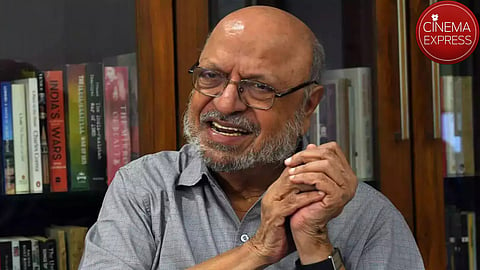

Just days after celebrating his 90th birthday, Shyam Benegal, a towering figure in Indian cinema and a pioneer of the Parallel Cinema movement, passed away in Mumbai on Monday evening. As per reports, the celebrated filmmaker had been battling chronic kidney disease. Benegal, whose body of work straddled the worlds of mainstream and alternative cinema with remarkable dexterity, leaves behind a legacy of nuanced storytelling and sharp social critique.
Born on December 14, 1934, into a Chitrapur Saraswat Brahmin family in Hyderabad, Shyam Sunder Benegal exhibited an early fascination with filmmaking. At the tender age of 12, he created his first short film with a camera gifted by his photographer father, Sridhar B. Benegal. Despite this early foray, his journey to becoming one of India's most influential filmmakers was a gradual one, as he began his professional career as a copywriter in a Mumbai-based advertising agency and directed his first cinematic project, the Gujarati documentary Gher Betha Ganga (Ganges at the Doorstep), in 1962.
Benegal’s groundbreaking debut feature, Ankur (The Seedling) (1973), not only introduced Shabana Azmi to Indian cinema but also marked the arrival of a filmmaker unafraid to tackle caste discrimination and other entrenched societal issues. His subsequent films, like Nishant (1976), examined complex human emotions and power dynamics, such as a powerless school teacher’s (Girish Karnad) harrowing struggle with his masculinity and morality when his wife (Azmi) is abducted by the village landlord and brothers.
The condition of women in Indian society remained a recurring theme in Benegal’s work. Bhumika (The Role) (1977), featuring a career-defining performance by Smita Patil, explored a female actor’s search for identity and fulfillment. Meanwhile, Mandi (1983) offered a trenchant exploration of the lives of sex workers within the confines of a brothel.
Benegal’s oeuvre extended beyond narratives of individual struggle to stories of collective empowerment, such as Manthan (The Churning) (1977), which chronicled the origins of India’s milk cooperative movement and was funded by 5 lakh farmers contributing two rupees each. His mastery over the medium also found expression in documentaries on towering figures like Jawaharlal Nehru and Satyajit Ray. His television series Bharat Ek Khoj (1988), based on Nehru’s The Discovery of India, remains a landmark in Indian historical storytelling.
In the latter stages of his career, Benegal ventured into lighter, more commercially inclined narratives with Welcome to Sajjanpur (2008), a slice-of-life comedy, and Well Done Abba (2010), a sharp political satire. Even in his later years, his creative spirit remained undiminished. At 89, he delivered his final film, Mujib: The Making of a Nation, a biopic on Sheikh Mujibur Rehman, the founding father of Bangladesh.
Earlier this month, on his 90th birthday, Benegal had been recorded speaking with optimism about ongoing projects. “We all grow old. I don’t do anything great (on my birthday). It may be a special day, but I don’t celebrate it specifically. I cut a cake at the office with my team,” he had said. He was still mulling over “two to three projects,” each distinct, expressing his commitment to storytelling for the big screen.
Speaking to us, actor Naseeruddin Shah, who worked extensively with Benegal, shared his heartfelt tribute: “It is impossible to describe in a few words what Shyam meant to me. I wonder what I would have become if he hadn't had faith in me when no one else did. He and Nira (his wife) were a huge support in my difficult days. He did whatever he could with his life—right to the end. Not many people can claim to have done that.”
With 18 National Awards and countless accolades to his name, Shyam Benegal’s contribution to Indian cinema is unparalleled. His films were more than mere narratives; they were reflections of the country’s evolving socio-political landscape, steeped in empathy and insight. Benegal bridged the gap between art and commerce, creating stories that were as thought-provoking as they were compelling. His absence leaves an irreplaceable void in the world of cinema, but his legacy endures, etched in the frames of the countless stories he brought to life.